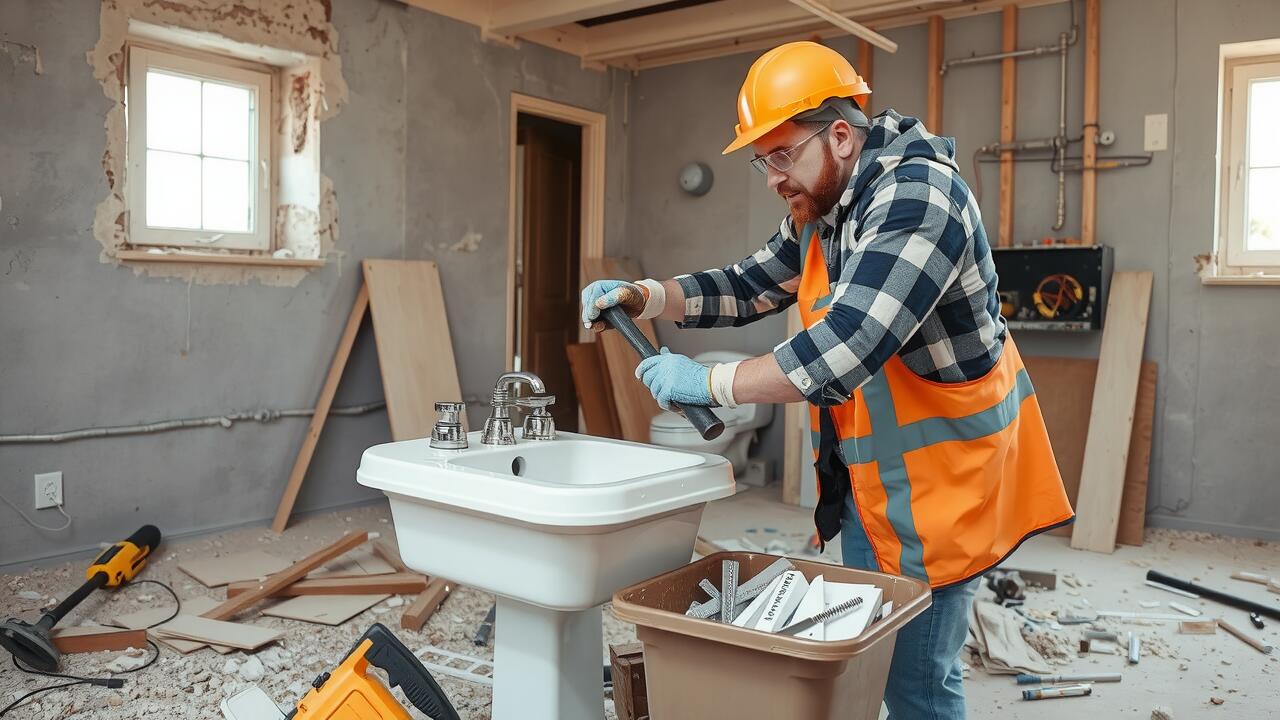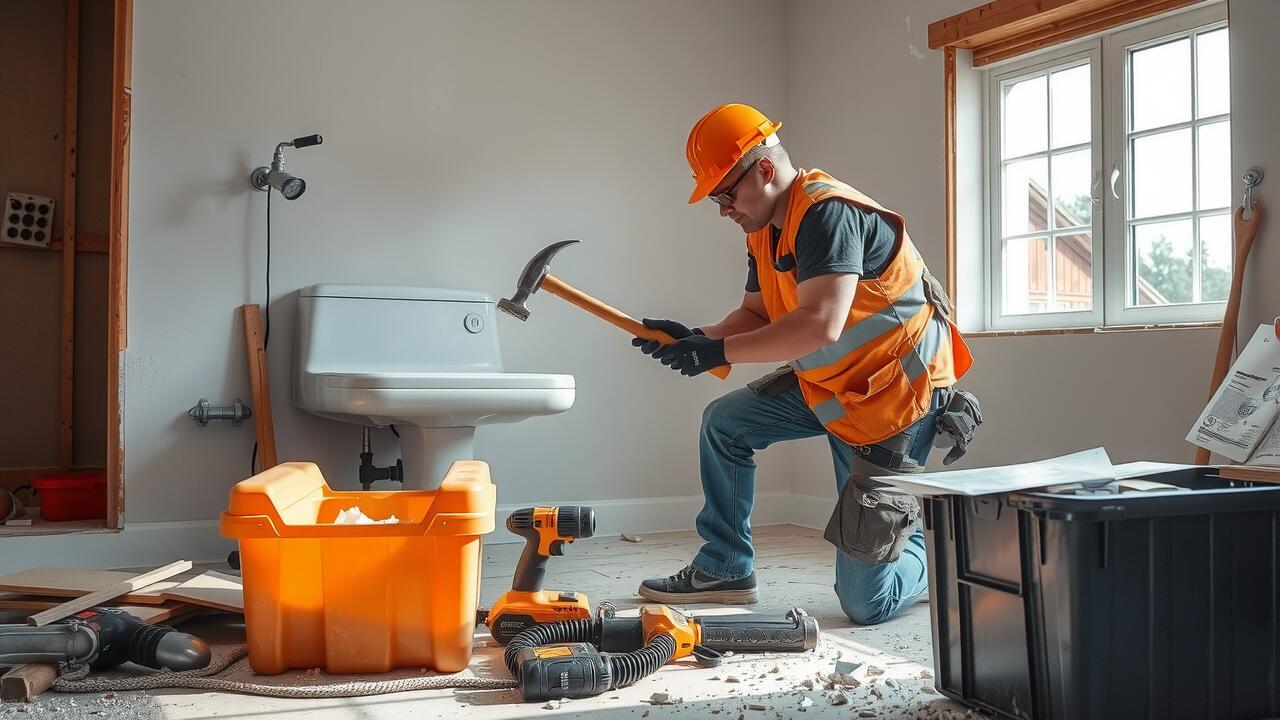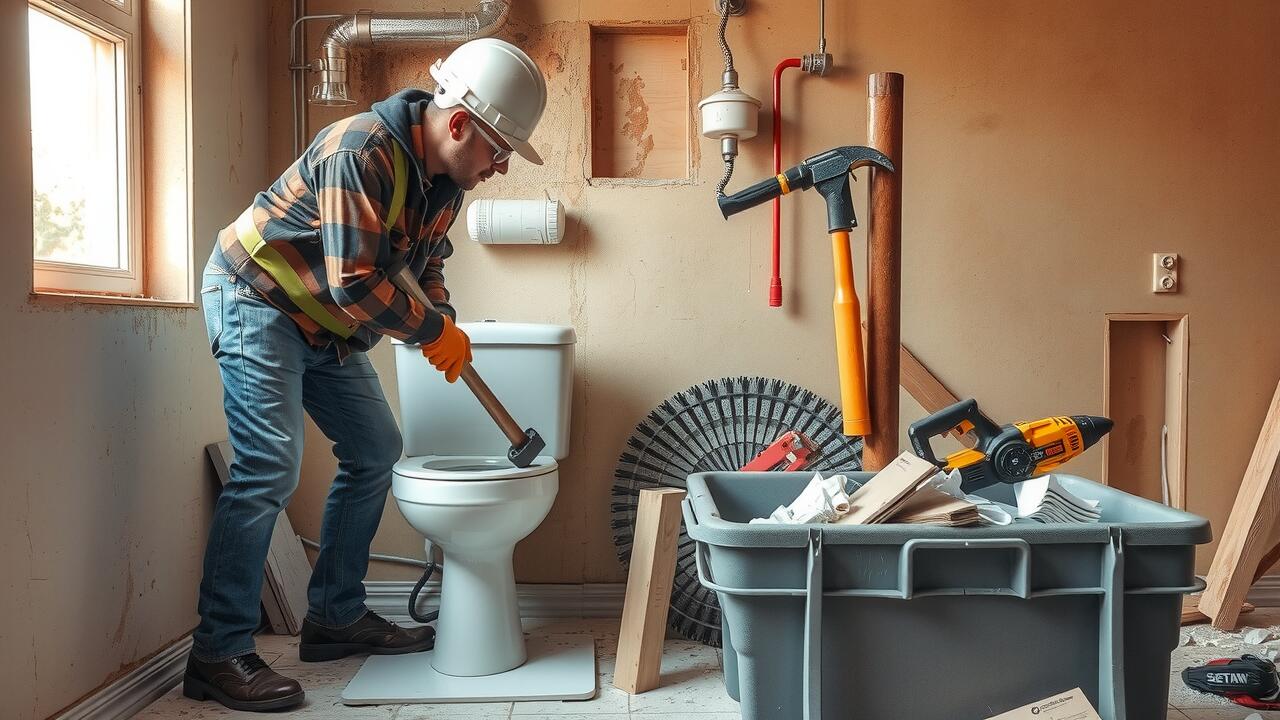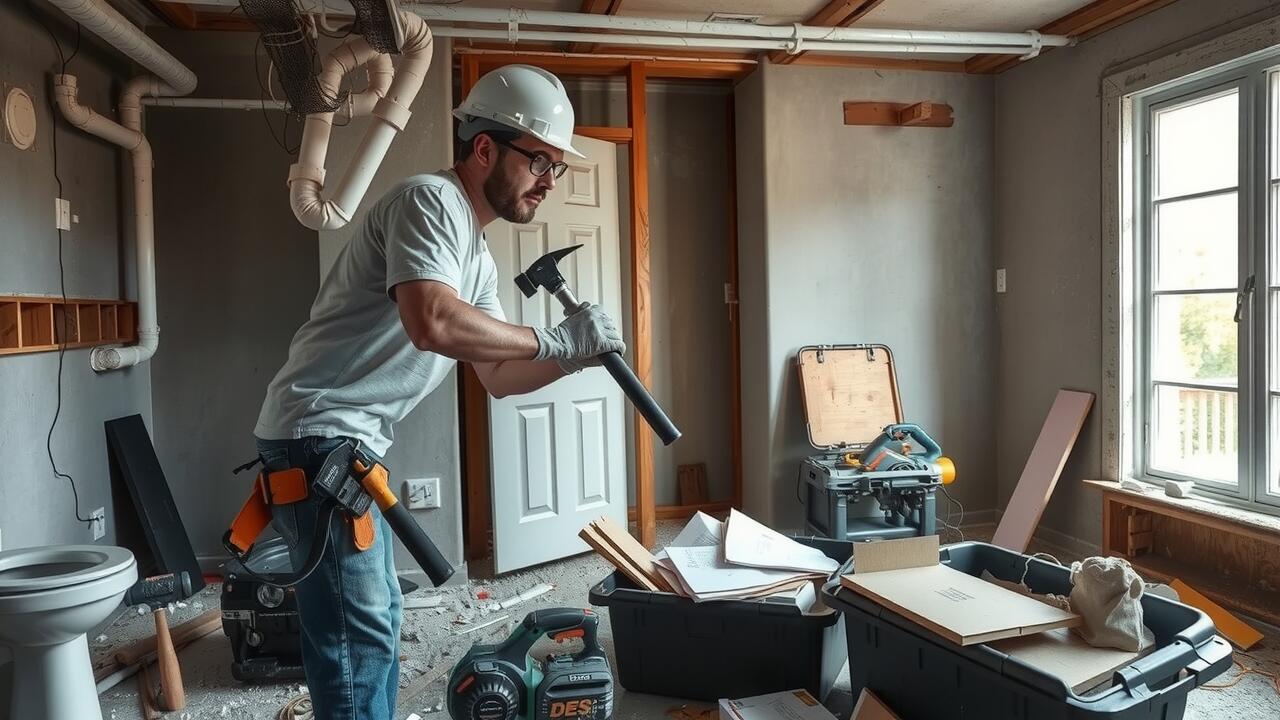
Special Cases for Planning Permission
Certain properties may fall under special regulations that require planning permission for demolition. For instance, if a building is listed or located within a conservation area, extra scrutiny is applied to any proposed demolition work. Local councils aim to protect the historical and architectural significance of these structures, meaning that alterations or demolitions might be heavily restricted. Owners are advised to consult their local authority before proceeding with any demolition plans.
Demolition and removal of existing fixtures near me often encounter similar challenges, especially when the property in question connects with the broader context of community planning. Additional considerations may involve the impact on local wildlife or the surrounding environment. Engaging with local planning policies is crucial to ensure compliance. Failure to adhere to these regulations can lead to disputes and additional costs, which can be easily avoided by seeking the necessary permissions in advance.
Listed Buildings and Conservation Areas
Listed buildings and conservation areas hold significant historical and architectural value, which means that their preservation is often strictly regulated. When considering any alterations or demolitions in these areas, it is essential to check whether the structure in question is listed or situated within a conservation zone. Demolition and removal of existing fixtures near me can be subject to specific requirements and conditions set forth by local authorities to ensure that the cultural heritage remains intact.
The process for handling applications for demolition in these protected zones can be considerably more rigorous. Local councils typically require detailed assessments that may involve consultations with heritage specialists and community members. This scrutiny helps ensure that any proposed work aligns with guidelines aimed at protecting the character and integrity of the area. Failure to comply with these regulations can lead to serious consequences, including legal action and large fines for unauthorized demolition.
The Role of Local Authorities
Local authorities play a crucial role in overseeing demolition projects within their jurisdictions. They ensure that any proposed demolition aligns with local development plans and adheres to relevant laws. As part of this process, councils evaluate applications to determine the potential impact on the environment and surrounding community. In some cases, they may require additional documentation or assessments to ensure that the planned demolition is justified and legally compliant.
Residents contemplating demolition and removal of existing fixtures near me should be aware of the need to engage with their local council. Authorities may impose specific conditions or restrictions based on the particular characteristics of the area. Understanding these guidelines can facilitate a smoother demolition process and prevent potential delays or complications arising from non-compliance with local regulations.
How Councils Assess Demolition Applications
Local councils evaluate demolition applications with a structured approach. Each application undergoes a rigorous assessment process, taking into account planning policies, local regulations, and the impact on surrounding areas. Factors such as the proposed timeline for demolition and any community concerns are also considered. Officers may consult with local interest groups and other stakeholders to gauge potential implications of the project.
In many cases, councils will require submissions of detailed plans that outline the methods of demolition. They may also request information regarding waste management and the proposed handling of materials afterward. Specific information may be necessary for projects described as "Demolition and removal of existing fixtures near me", highlighting the need for thorough documentation. This comprehensive evaluation ensures that all relevant factors are scrutinised before granting permission.
Consequences of Demolishing Without Permission
Demolishing a structure without securing the necessary permissions can lead to significant repercussions. Local authorities take violations seriously, potentially imposing heavy fines on individuals or contractors involved in unapproved demolition work. In some cases, the offending party may be required to restore the site to its original condition, adding to the financial burden. Furthermore, illegal demolitions can impact surrounding properties, sparking disputes that could result in additional legal challenges.
When it comes to planning for future projects, such as "Demolition and removal of existing fixtures near me," non-compliance can create barriers. Obtaining retrospective planning permission can be a lengthy and complicated process, often resulting in project delays. Additionally, successful legal action by local councils can tarnish reputations and deter future business opportunities in the construction sector. Understanding the importance of adhering to regulations is crucial for anyone considering a demolition project.
Potential Legal Implications and Fines
Undertaking demolition without the necessary planning permission can lead to significant legal consequences. Local authorities have the power to enforce strict penalties on individuals or companies that disregard these regulations. Fines can be substantial, sometimes reaching tens of thousands of pounds, depending on the severity of the breach. In addition to financial penalties, property owners may be ordered to reinstate the demolished structure, which can result in further costs and delays.
Failure to comply with planning permissions can also result in criminal prosecution in some cases. Local councils closely monitor building activity, and any unapproved work can attract scrutiny. If you are considering demolition and removal of existing fixtures near me, it is crucial to consult with local planning authorities to ensure compliance. Ignoring these requirements not only jeopardises your project but can also leave you facing lengthy legal battles.
FAQS
Do I need planning permission for all types of demolition?
Not all types of demolition require planning permission; however, it is essential to check with your local authority, as regulations may vary based on location and the specific nature of the demolition.
What are the special cases where planning permission is required?
Special cases include demolishing listed buildings, structures in conservation areas, or other designated sites that have historical or architectural significance.
How do local authorities assess demolition applications?
Local authorities assess demolition applications by considering factors such as the building's heritage value, the impact on the surrounding environment, and potential objections from the public.
What are the consequences of demolishing a building without the necessary permission?
Demolishing without the required permission can lead to legal implications, including enforcement notices, fines, and the requirement to restore the site to its original condition.
How can I find out if my building is listed or in a conservation area?
You can check if your building is listed or located in a conservation area by consulting your local planning authority or using official resources such as the National Heritage List for England.




